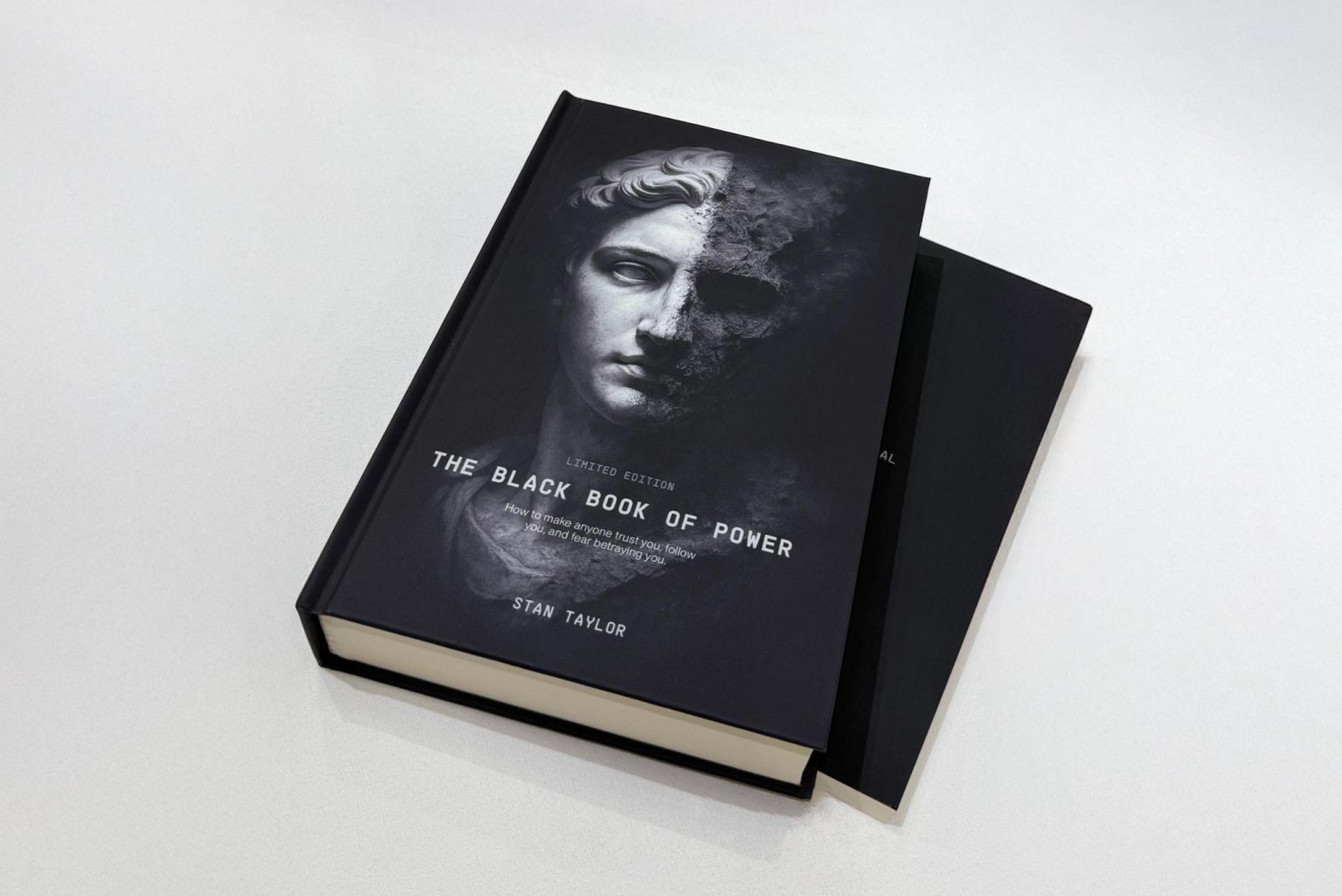Listen to the article
After more than two decades spent influencing public perception for politicians and Fortune 500 companies, communications specialist Stan Taylor is now using his insider knowledge to help individuals recognize manipulation tactics. His book, “The Black Book of Power,” has rapidly gained traction, selling 60,000 copies in just a few months.
“I have fingerprints on major manipulations of public opinion since 1998,” Taylor writes in his introduction. “I’m done building prisons. Now I’m handing out keys.”
The Wellington, Florida-based author positions his work not as traditional self-help, but as a practical guide to understanding the hidden mechanisms of influence in modern society. The book examines psychological manipulation, power dynamics, and persuasion techniques used across politics, business, and media.
Taylor’s approach has resonated particularly with what he terms “Late-Stage Phoenixes” — professionals over 45 who feel disillusioned after playing by established rules only to find themselves disadvantaged. He cites research from MIT and Northwestern University showing that entrepreneurs aged 50 are 2.2 times more likely to build successful companies than their 30-year-old counterparts, with those odds tripling by age 60.
Readers report significant transformations within days of beginning the book. One senior Microsoft engineer decoded what he calls the “Shadow Organization Chart” — the unofficial power structure that drives real decisions within companies — leading to two promotions. A Phoenix real estate broker increased her closing rate from 12% to 47% after implementing Taylor’s “Identity-Based Pricing” framework.
The book’s central framework, the “72-Hour Phoenix Protocol,” challenges readers to confront limiting beliefs Taylor calls “The Parasite.” This is complemented by the “21-Day Empathy Protocol,” which aims to transform excessive emotional absorption into a strategic asset through practices combining Stoic philosophy with modern neuroscience.
“You can’t think your way to sovereignty. You have to rewire the circuits through 21 days of controlled discomfort,” Taylor explains. “Most people’s empathy is a liability that makes them easy to manipulate. This protocol transforms it into a weapon of clarity.”
Unlike typical publishing strategies, “The Black Book of Power” is deliberately priced at $97 — significantly higher than standard self-help titles. Taylor defends this approach as a means to combat what he calls “threshold addiction,” where readers collect books without implementing their teachings. The premium price point, he argues, creates commitment before consumption.
“Most people are addicted to buying transformation rather than undergoing it,” Taylor contends. The difference between his book and a $15 paperback is “the cost of choosing execution over endless preparation.”
The book’s content includes detailed analyses of manipulation techniques, from Edward Bernays’ early propaganda methods to modern media influence strategies. Chapter 7 outlines the “Ten Primal Hungers” that drive human decisions, while Chapter 14 maps the invisible power networks operating within organizations.
Taylor positions his work as “ammunition for a consciousness revolution already in progress” and an antidote to “the self-help industrial complex” — an industry he criticizes for keeping people functional enough to serve systems of control without empowering them to challenge those systems.
“Most people die at 25 and aren’t buried until 75,” Taylor writes. “This book is for the ones who’ve decided to resurrect.”
The book’s success highlights growing public interest in understanding manipulation tactics and power structures in an era of information overload and sophisticated influence campaigns. As traditional institutions face increasing skepticism, Taylor’s blend of insider knowledge and practical frameworks appears to be meeting a market need for tools that help individuals navigate complex social and professional landscapes.
For Taylor, teaching conscious manipulation represents an ethical response to a world where unconscious manipulation has become the norm. As he bluntly puts it: “You’re already being played. The only question is whether you’ll learn to see the game board.”
Fact Checker
Verify the accuracy of this article using The Disinformation Commission analysis and real-time sources.




8 Comments
Intriguing that Taylor’s approach is more practical guide than traditional self-help. The psychological underpinnings of influence and power dynamics in politics, business and media are clearly an important area to understand these days.
Agreed, a pragmatic, insider’s perspective on these complex issues could be invaluable. I look forward to seeing what specific counter-manipulation techniques Taylor outlines in his book.
I’m intrigued by the contrast Taylor draws between his past work building ‘prisons’ of influence and now ‘handing out keys’ to help people break free. That framing suggests a compelling redemption narrative.
60,000 copies sold in just a few months is an impressive feat. Clearly there’s a growing appetite among the public to gain more transparency and agency in the face of pervasive influence tactics. I’ll have to check out this book.
Agreed, the timing seems ripe for a book like this. With so much public mistrust in institutions, people are looking for practical tools to navigate the manipulative currents of modern society.
The concept of ‘Late-Stage Phoenixes’ – professionals over 45 who feel disillusioned after playing by the rules – really resonates. I’m curious to learn more about the research Taylor cites on their entrepreneurial potential.
Fascinating insights from someone who’s been behind the curtain of media manipulation. I’m curious to learn more about the counter-techniques he shares in ‘The Black Book of Power’ – it sounds like a must-read for anyone wanting to understand how influence really works today.
This book seems to tap into a real zeitgeist around public skepticism of authority and a desire for more transparency. The fact that Taylor openly acknowledges his past role in media manipulations lends credibility to his perspective.